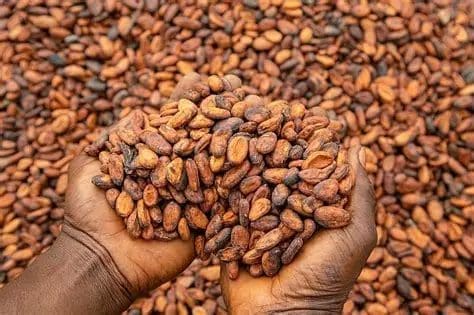Cargill has suspended cocoa grinding operations in Ivory Coast due to poor bean quality, highlighting deepening supply chain disruptions that threaten global chocolate production and underscore structural challenges facing West Africa’s dominant cocoa industry.
The US commodities giant halted processing at its facilities after encountering beans with unusually high waste material levels that reduce yields and risk damaging equipment, according to industry sources. The suspension represents the first such action by Cargill in decades of operations within the world’s largest cocoa-producing nation.
Current season beans from Ivory Coast’s mid-crop harvest exhibit critically low fat content, elevated acidity levels, and excessive waste that render grinding operations unprofitable. The quality deterioration comes as the country struggles with climate-related production challenges that mirror difficulties experienced across West Africa’s cocoa belt.
Industry data reveals grinding activity in Ivory Coast plummeted 31.2 percent year-on-year in July 2025, falling to just 39,301 tons as processors grapple with substandard raw materials. Season-to-date grinding totaled 515,055 tons through July, representing a four percent decline compared to the previous year.
Bean deliveries to Ivory Coast’s primary ports in Abidjan and San Pedro dropped approximately 30 percent between April and mid-August, falling to 350,000 tons as supply constraints tighten. Exporters report depleted stockpiles leave processors with minimal working inventory until the main harvest begins in October.
Ghana faces complementary challenges with quality beans but severely constrained output. Production for the 2024-25 season hovers around 530,000 tons, marking the lowest levels in more than two decades as swollen shoot disease, black pod fungus, and aging tree stock erode productive capacity.
Cocoa futures have experienced extreme volatility, reaching historic highs above $12,000 per ton before declining to current levels around $8,000-10,000, creating unprecedented cost pressures for chocolate manufacturers worldwide.
The quality crisis in Ivory Coast undermines the nation’s strategy of positioning itself as both the world’s leading grower and processor. Major multinationals including Barry Callebaut and Olam have expanded processing capacity in the country, but current bean standards threaten the viability of these investments.
Global cocoa production is projected to fall short by over one million metric tons in 2025, creating supply gaps that compound existing market tensions. Climate change continues wreaking havoc on cocoa farms while demand for chocolate products grows by approximately three percent annually.
Cargill previously completed a $100 million expansion of its Ivory Coast processing facilities in 2021, increasing annual grinding capacity to 160,000 tons. The current suspension highlights how rapidly deteriorating agricultural conditions can undermine major infrastructure investments.
Farmers across both countries express frustration that record global prices have failed to translate into proportional income increases. Currency fluctuations and rising input costs have eroded potential gains from historically high commodity valuations.
The crisis extends beyond immediate processing challenges to encompass broader governance issues. European Union anti-deforestation regulations require strict bean traceability from December 2024, creating compliance burdens that smaller cooperatives may struggle to meet without financial support.
Both Ivory Coast and Ghana implemented a Living Income Differential in 2019, adding $400 per ton to export prices to boost farmer incomes. However, most growers report minimal life improvements from the premium, suggesting structural issues persist within value chain distribution mechanisms.
Ivory Coast has already announced plans to reduce forward sales for the 2025-26 season to approximately 1.3 million tons, down from typical levels of 1.7 million tons, anticipating continued production difficulties.
The processing suspension leaves global chocolate manufacturers increasingly vulnerable to supply disruptions as traditional sourcing patterns prove unreliable. Companies like Hershey already confront elevated raw material costs that threaten profit margins and may ultimately impact consumer pricing.
Industry observers suggest the crisis reflects fundamental shifts requiring coordinated responses addressing climate adaptation, agricultural technology deployment, and farmer support systems. Without comprehensive interventions, West Africa’s cocoa sector faces continued instability that could reshape global chocolate industry supply chains.
Processors now await October’s main crop harvest, hoping improved volumes and quality will stabilize operations and restore monthly grinding levels toward historical averages of 58,000 tons in Ivory Coast.
Source: newsghana.com.gh











